


The scoring of Go-Stop may vary slightly depending on the locale or "house rules," or depending on how many jokers you use in play. Electronic versions of Go-Stop (computer, internet, wireless, or arcade) may also use different scoring. With the card pictures below, I give my recommended scoring system. There's a handy table at the bottom of this page, showing some different scoring systems. You are free to use whichever one you desire (and both players agree). See the three rules on table rules.)
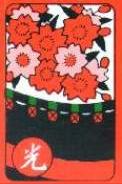
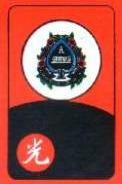

Any two Brights, plus the Rain Man. VALUE: 2 POINTS.
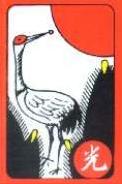


Any three Brights (NOT including the Rain Man). VALUE: 3 POINTS.




The Rain Man, plus any three other Brights. VALUE: 4 POINTS




The four "dry" Brights (Rain Man excluded). VALUE: 5 POINTS.





All five of the Bright cards. VALUE: 15 POINTS


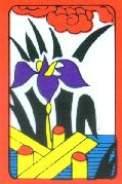
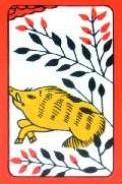
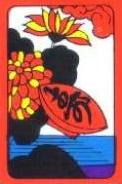
Any five Animal cards. VALUE: 1 POINT.

Each additional Animal card, above five. VALUE: 1 POINT.
For example, six Animals = 2. Seven Animals = 3. And so on.



The Geese, the Cuckoo, and the Nightingale form a valuable combination (these birds only). VALUE: 5 POINTS.



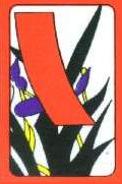

Any five Ribbon cards. VALUE: 1 POINT.
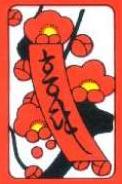
Each additional Ribbon card above five. VALUE: 1 POINT.
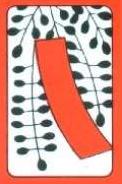


Three Ribbons of the same type (either Blue Poetry, Red Poetry, or Dry Plain*). VALUE: 3 POINTS.

NOTE: Scoring combinations can be used in combination with other scoring combinations (under the "freedom of choice" principle). If you have six ribbons, including all three blue poetry ribbons and all three red poetry ribbons, you can claim 3 points each for the two triplets and 2 points for having six ribbon cards, for a total of 8 points.
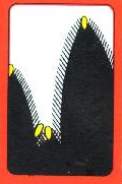
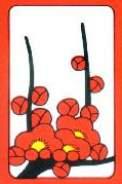
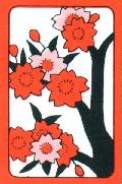
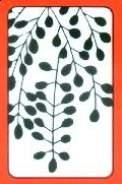

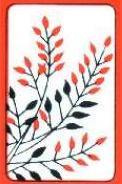
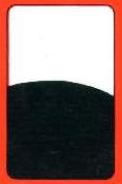
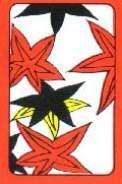
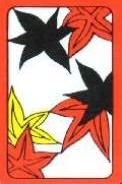
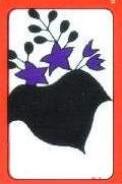
Any ten junk cards (pi). VALUE: 1 POINT.
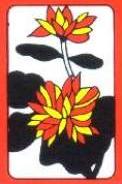
Each additional junk card above ten adds an extra point. VALUE: 1 POINT.
SPECIAL JUNK CARDS:

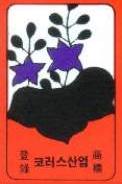

The above cards may be counted as two junk cards under Korean rules (put your mouse cursor on each card to bring up a little pop-up describing the card). The Wine Cup card may be used as either one Animal or two Junk - not both - at the player's discretion. Before beginning play, discuss and agree whether the Lightning and Paulownia cards may also count as two. See the three rules on table rules.) Koreans call the Double Junk cards "sang-pi."
JOKERS:


As previously discussed, most Korean players use these two jokers, which are used to represent two or three junk cards respectively (put your mouse cursor on each card to bring up a little pop-up describing the card).
EXAMPLE:

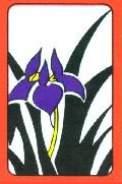



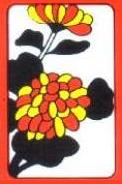





If the Lightning and Red Paulownia card are being used as two Pi, then the above is worth 16 junk cards. TOTAL: 7 POINTS (1 point for the first 10, then 1 point each for the remainder). Put your mouse cursor on each card to bring up a little pop-up describing the card's worth.
When a player declares "stop," the player's hand is examined to determine the point count, according to the scoring combinations shown above.
After counting and adding the winner's points, the score is increased if any doublers or multipliers apply (either because the loser had no Brights or had less than seven pi, or because the winner had said "Go" multiple times).
The winner's take can be increased under the following circumstances:
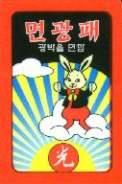

The overall structure of a Go-Stop game wasn't explained to me. Players might just continue playing as long as both wish to continue, or you can do what I suggested in my description of the Japanese game of koi-koi; end the game when one player's score totals 50 points (or when one player runs out of Monopoly money).
| Taesun | hangame | Arcade | |
| Wet 3 Bright | 2 | 2 | 2 |
| Dry 3 Bright | 3 | 3 | 3 |
| Wet 4 Bright | 3 | 4 | 4? |
| Dry 4 Bright | 4 | 4 | 5? |
| Five Bright | 15 | 15 | 15 |
| Five Animals | 1 | 1 | 1 |
| Each extra Animal | 1 | 1* | 1 |
| Godori | 3 | 5 | 5 |
| Five Ribbons | 1 | 1 | 1 |
| Each extra Ribbon | 1 | 1 | 1 |
| 3 Matching Ribbons | 3 | 3 | 3 |
| Ten Junk | 1 | 1 | 1 |
| Each extra Junk | 1 | 1 | 1 |
| * If you have seven or more Animals, double the Animals score | |||
Click to go to the next page: Strategy and resolving conflicts
Big thanks to Tae Sun Yeom for information presented herein. Thanks also to Rick Wohlschlag.
Copyright 2003, 2004, 2012 Tom Sloper. All rights reserved. Reproduction by written permission of the author only.